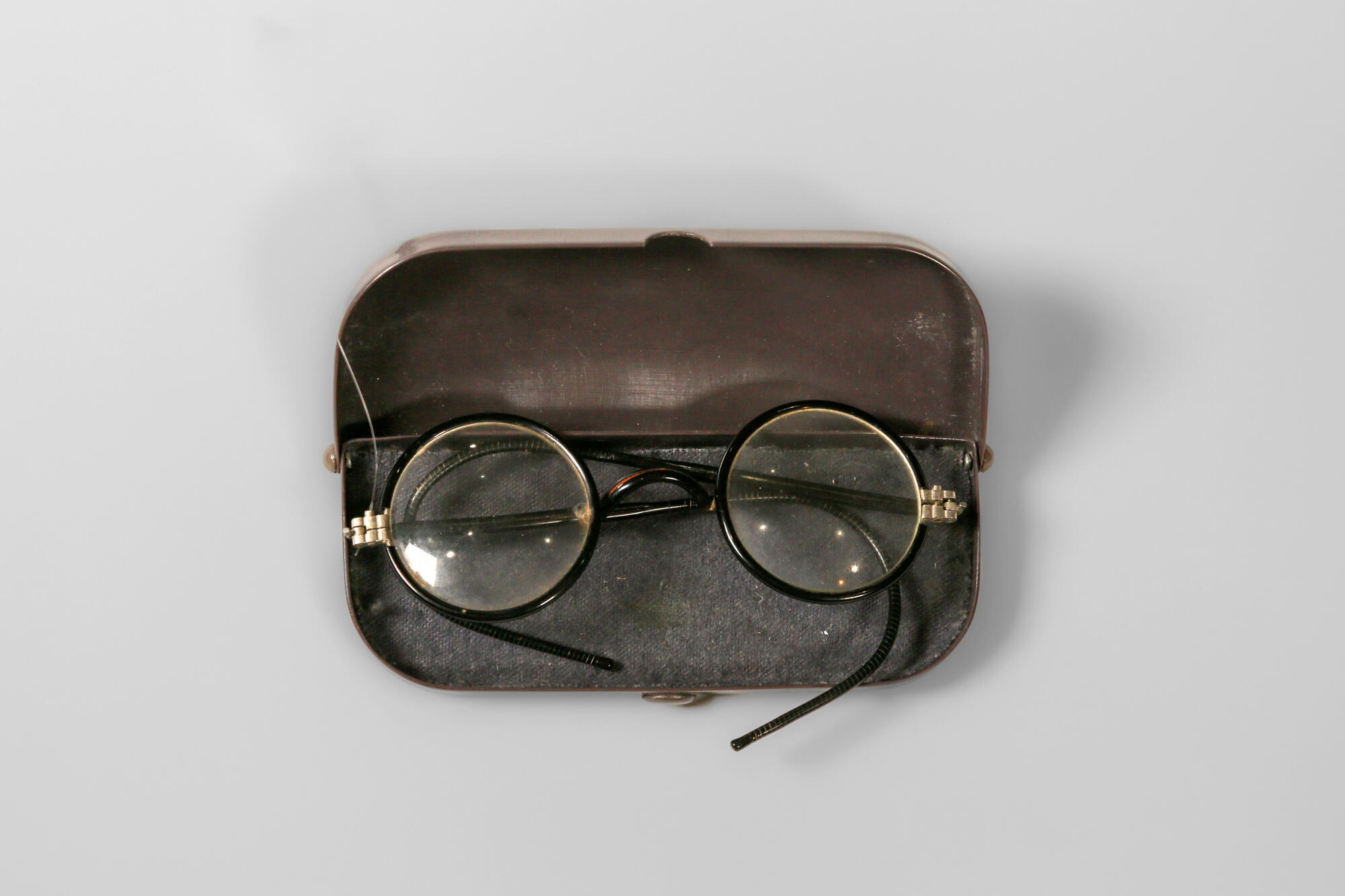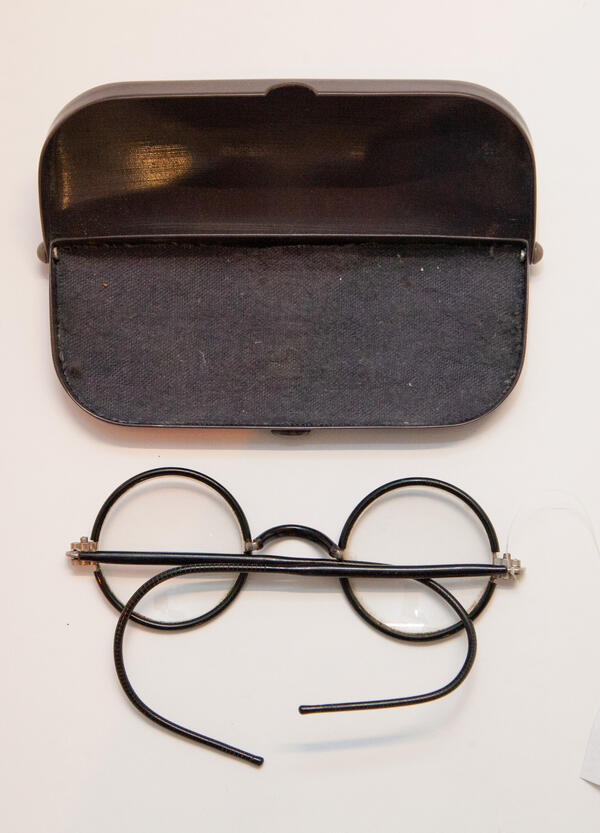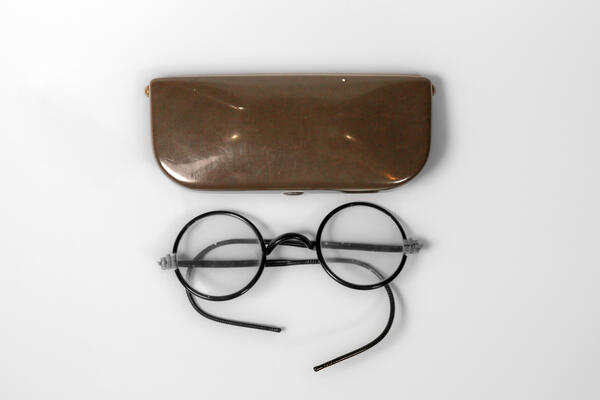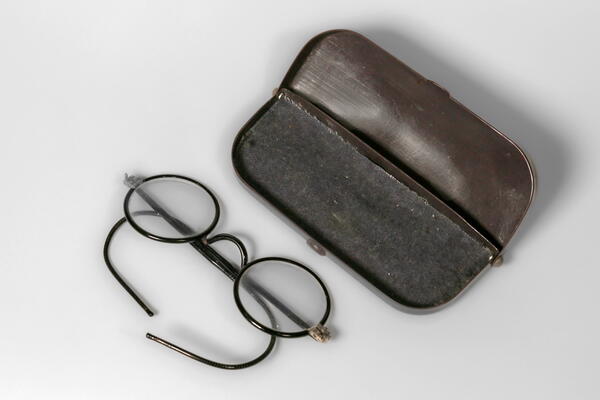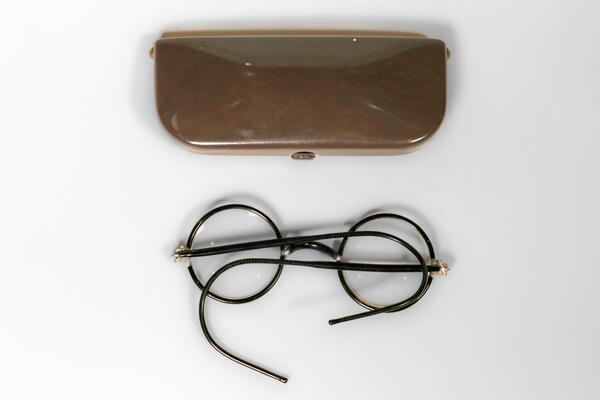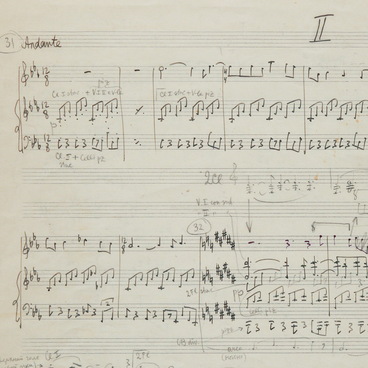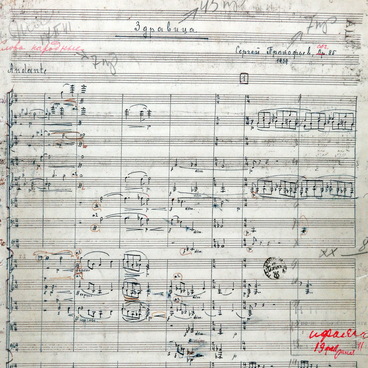Sergei Prokofiev started wearing glasses when he was around thirty. He described his appearance with self-irony, “Since I last saw you, I have gone bald, started wearing glasses, and now look about 45 years old.” In another letter, he wrote “Since then I haven’t changed too much, except I have lost a few hairs, one tooth (when I fell off a bicycle) and have become more nasty.” His newborn son, however, was fond of his father’s glasses. Prokofiev wrote, “Svyatoslav smiles at me continually and generally loves me, I believe mainly on account of my red striped jacket and my spectacles.”
In 1913, he described his deteriorating eyesight in his diary, “My eyesight is getting worse. In the past, I could see everything. Now I notice that sometimes I cannot read signs or street names, I cannot always see the tower clock face, and the faces on the balcony are blurry when I sit in the stalls. So far, it is alright, but if it keeps weakening, it can get worse.” In 1924, his eyesight worsened once again. Prokofiev wrote, “I consulted Polack about my eyes. The left eye has not altered very much, but the right eye is catching it up and has deteriorated. He changed the prescription for my glasses. How curious that I suffer neuralgia in the left eye, but it is the right one that is getting worse.”
Later, Prokofiev became fascinated with Christian Science, a religious movement that denied the existence of illnesses. The composer stopped taking medicines and wearing glasses. He tried to get rid of diseases by relying on self-suggestion. He wrote in his diary, “I came to the conclusion that in renouncing the use of medicines but continuing to wear glasses I am guilty of inconsistency and bad faith. I determined to stop wearing glasses. Mine are not very strong and I can do without them relatively easily. Yet doctors in prescribing them tell me that if I do not wear them my eyes will soon deteriorate. Nevertheless, after a heated discussion with myself, I decided that if I truly believe in Christian Science I must discard them, and that Christian Science will ensure that my eyes improve. In this manner the question was resolved, and I took them off”.
Prokofiev also had sunglasses which he had bought in Geneva in 1913. The composer took great pride in this purchase, which gave him an advantage over English tourists. He said, ”…where an Englishman squints at the sun, I have colored glasses.”
In 1913, he described his deteriorating eyesight in his diary, “My eyesight is getting worse. In the past, I could see everything. Now I notice that sometimes I cannot read signs or street names, I cannot always see the tower clock face, and the faces on the balcony are blurry when I sit in the stalls. So far, it is alright, but if it keeps weakening, it can get worse.” In 1924, his eyesight worsened once again. Prokofiev wrote, “I consulted Polack about my eyes. The left eye has not altered very much, but the right eye is catching it up and has deteriorated. He changed the prescription for my glasses. How curious that I suffer neuralgia in the left eye, but it is the right one that is getting worse.”
Later, Prokofiev became fascinated with Christian Science, a religious movement that denied the existence of illnesses. The composer stopped taking medicines and wearing glasses. He tried to get rid of diseases by relying on self-suggestion. He wrote in his diary, “I came to the conclusion that in renouncing the use of medicines but continuing to wear glasses I am guilty of inconsistency and bad faith. I determined to stop wearing glasses. Mine are not very strong and I can do without them relatively easily. Yet doctors in prescribing them tell me that if I do not wear them my eyes will soon deteriorate. Nevertheless, after a heated discussion with myself, I decided that if I truly believe in Christian Science I must discard them, and that Christian Science will ensure that my eyes improve. In this manner the question was resolved, and I took them off”.
Prokofiev also had sunglasses which he had bought in Geneva in 1913. The composer took great pride in this purchase, which gave him an advantage over English tourists. He said, ”…where an Englishman squints at the sun, I have colored glasses.”
